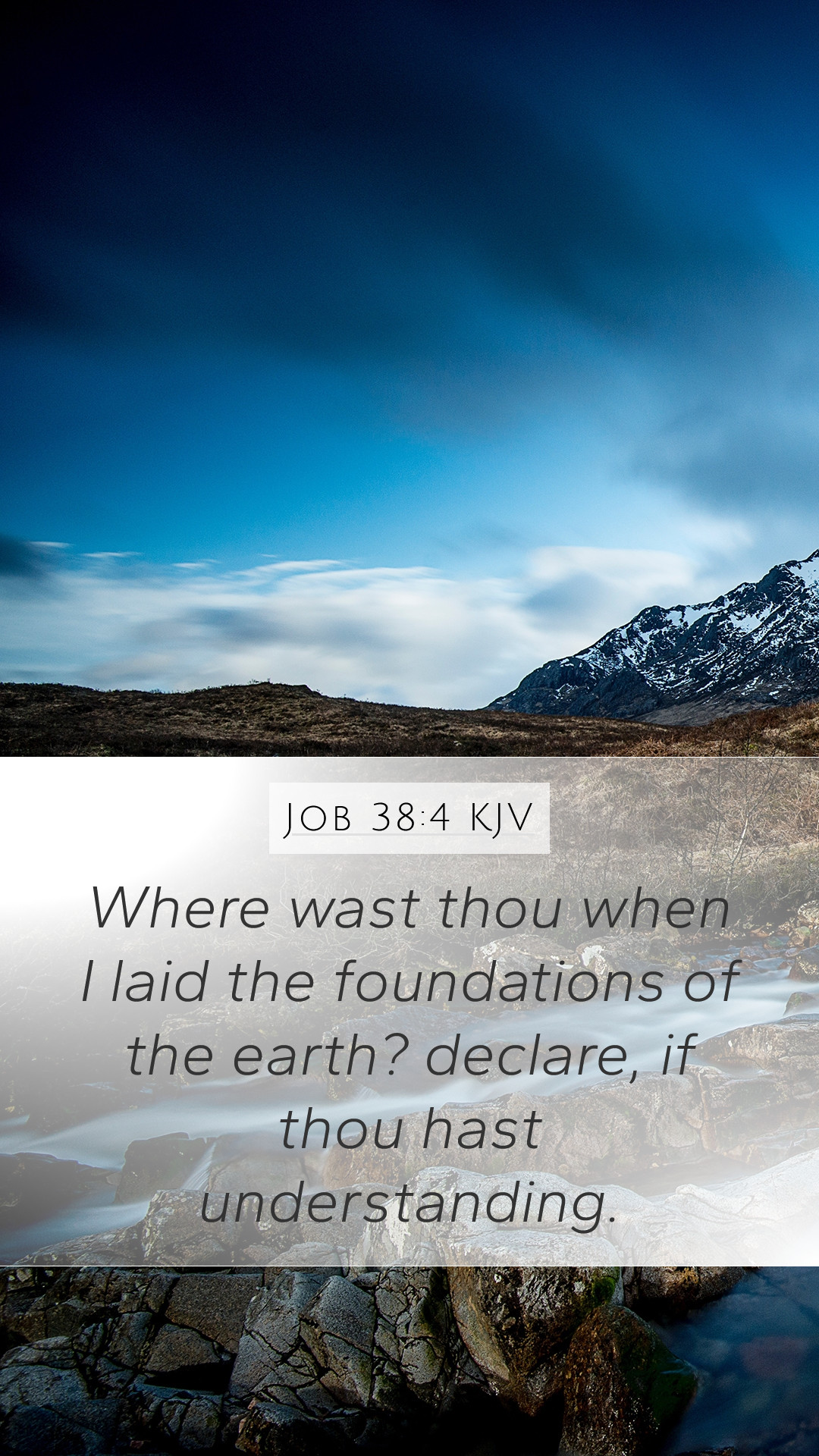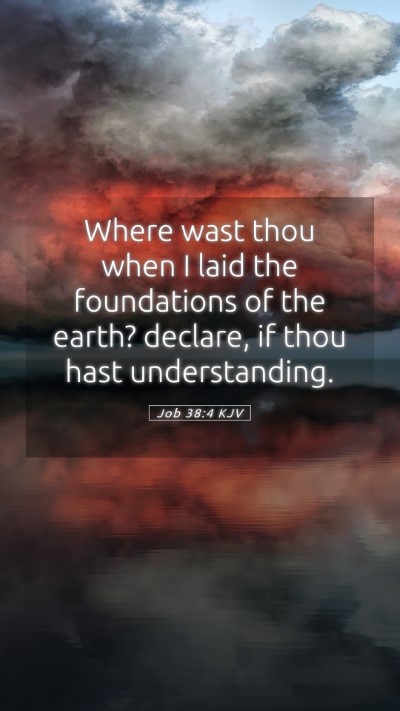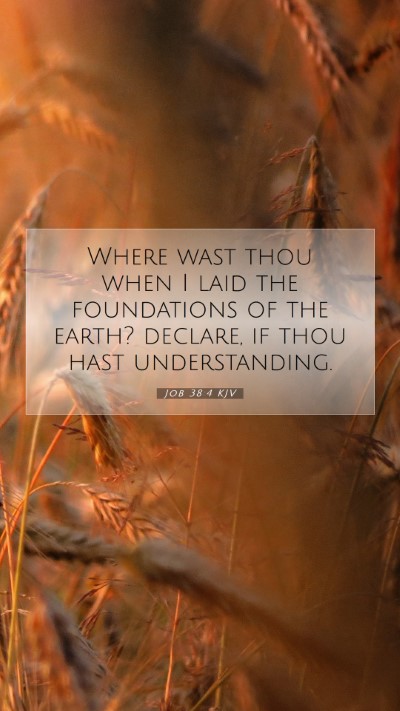Bible Verse Meaning and Commentary for Job 38:4
In Job 38:4, the Lord poses a profound question to Job: "Where wast thou when I laid the foundations of the earth?" This question emphasizes God's creation's divine authority and the human inability to fully comprehend the intricacies of the universe. The surrounding verses reveal that God's wisdom and power distinguish Him as the Creator. This portion of Scripture serves as a crucial point in the book of Job, aiming to impart deeper Bible verse meanings and insights into the nature of God.
Understanding the Context
The book of Job presents the story of a man who suffered immense loss and pain, questioning God about his suffering. In Job 38, God finally responds to Job, not with explanations, but with questions that highlight Job's limited understanding. This passage is pivotal, shedding light on Bible verse interpretations focused on the relationship between God and humanity.
Scripture Analysis and Insights
1. God's Sovereignty in Creation
Public domain commentary highlights:
-
Matthew Henry: God’s inquiry serves to remind Job of His own insignificance in regard to the grand design of the world. It emphasizes that Job was not present during creation and thus lacks understanding of divine matters.
-
Albert Barnes: The question indicates that only God possesses the wisdom and power to create and govern the world. This rhetorical approach teaches humility before God’s majesty.
-
Adam Clarke: Clarke notes that the laying of the earth's foundations represents the stability and order imposed by God, showcasing His omnipotence.
2. Human Limitations
The verse serves as a humbling reminder of the limitations of human knowledge. In the face of personal suffering, it is easy to forget our position relative to God’s infinite wisdom. The point is reiterated across various commentaries:
-
Matthew Henry: The Lord challenges human presumption and asserts that man cannot claim to understand God’s eternal plans.
-
Albert Barnes: The text underscores that humans are often quick to question God but slow to recognize His vast knowledge and authority.
-
Adam Clarke: Clarke indicates that this verse is a call to seek a deeper Bible verse understanding and trust in God’s plans, even when they are beyond our comprehension.
Theological Implications
The theological importance of Job 38:4 can be analyzed through various lenses:
-
The Nature of God: This verse reveals the transcendence of God and His role as Creator and Sustainer of the universe.
-
Human Response: It challenges readers to reflect on how they confront suffering and the mysteries of life.
-
Faith and Trust: The passage invites believers to trust God’s wisdom, even when circumstances seem unwarranted.
Application of the Verse
How to apply Job 38:4 to daily life: Believers can draw lessons from this verse that encourage humility in the face of life's challenges, reassuring us that God’s plans are often beyond human understanding. When seeking Bible study insights, this verse offers a unique entry point into discussions on trusting God's goodness amid suffering.
Related Bible Cross References
- Psalms 104:24-25: Celebrates God's creation and the wonders of His handiwork.
- Isaiah 40:12: Questions who has measured the waters, emphasizing God's omnipotence.
- Romans 11:33: Highlights the depth of God's wisdom and knowledge.
- Proverbs 3:5-6: Encourages trust in the Lord for guidance.
- Colossians 1:16: Affirms that all things were created through and for God.


